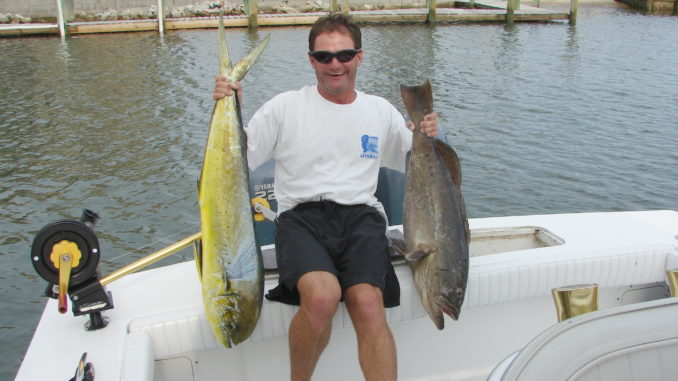
MOREHEAD CITY – A 2007 stock status report released at the end of June shows changes to the status of some species based on new definitions for different categories describing the health of fish and shellfish populations in North Carolina coastal waters.
Under the former definitions, a species was classified as overfished based on a stock assessment conducted by the N.C. Division of Marine Fisheries, the Atlantic States Marine Fisheries Commission or a National Marine Fisheries Service regional council. The new definitions address the assignment of a stock status to a species that has an unapproved or no stock assessment.
This could affect the state’s fisheries because the N.C. Marine Fisheries Commission uses the report to prioritize development and updates of fishery management plans, which are blueprints for long-term regulations and other restoration measures.
The new stock status report also changes the category overfished to depleted to incorporate those fish stocks that may have declined for reasons other than fishing pressure.
In brief, under the new definitions, a stock is considered viable when it exhibits stable or increasing trends in a number of biological factors associated with healthy populations such as a normal distribution of sizes, ages and spawning-age females or when it has met biological targets for sustainable harvest.
A stock is considered recovering when it shows marked and consistent improvement in the criteria listed for a viable stock, but has not yet reached its target.
Stocks designated as concern are those that have seen increased fishing pressure, a decline in landings, lack a normal age distribution or are negatively impacted by environmental factors that cannot be controlled but do not have an approved stock assessment or fishery management plan.
A depleted stock is a population in which there are too few spawning females to support an active fishery. Factors that can contribute to this status include, but are not limited to, overfishing, poor water quality, habitat loss, larvae survival and disease. This status determination is based on an approved stock assessment or fishery management plan.
A stock is classified as unknown when there is not sufficient data to determine trends in fishing pressure, landings or biological factors. Stocks designated as unknown are often prioritized for research programs.
Three species – scup, bay scallops and sharks – received a different stock status than they would have under the old definitions.
Scup was downgraded from recovering to concern because there is no recent stock assessment and there is a lack of data to evaluate the stock status.
Bay scallops moved from concern to depleted based on the lack of an active fishery in North Carolina. There is no stock assessment available, but effects of the red tide, hurricanes and predation have resulted in a low population.
Sharks moved from recovering to concern because there is a lack of information on some species and unreliable stock assessments on others.
Three species were upgraded in stock status for reasons other than the definitions change.
Bluefish moved from recovering to viable based on an ASMFC/MAFMC joint 2006 stock assessment.
Spiny dogfish are no longer overfished, according to a 2006 NMFS assessment. The stock was moved from overfished (depleted) to recovering because, though it is heading in the right direction, there is still apprehension related to the nature of the spiny dogfish’s life history and the reduction in number and sizes of females that could hinder successful expansion of the stock.
Tautog was upgraded from depleted to concern because the latest stock assessment is unable to determine if the stock is overfished.
Five species were downgraded in stock status for reasons other than the change in definitions.
Black sea bass north of Hatteras moved from viable to concern because a recent Northeast Fisheries Science Center tagging study could not determine if the species is being overfished and a science panel rejected a 2006 stock assessment.
Gag grouper moved from viable to concern because a South Atlantic Fishery Management Council stock assessment showed that while the supply of the fish is not yet exhausted, too many fish are being caught for the population to sustain itself over time.
Monkfish shifted from recovering to concern because it is behind on a 10-year rebuilding schedule adopted in a Monkfish Fishery Management Plan in 1999 by the New England and Mid-Atlantic fishery management councils.
Spot was downgraded from viable to concern because landings and fishing effort has dropped. There are also indications of a long, slow decline in the abundance of spot all along the Atlantic coast.
Weakfish changed from concern to depleted based on the results of the most recent ASMFC stock assessment. There is little evidence of overfishing. The stock appears to be declining because of natural mortality. Management measures to reduce fishing effort should be in place by October.
The full stock status report is available on the DMF website at www.ncdmf.net. For more information contact Trish Murphey by phone at 252-726-7021 or by email at trish.murphey@ncmail.net.



Be the first to comment